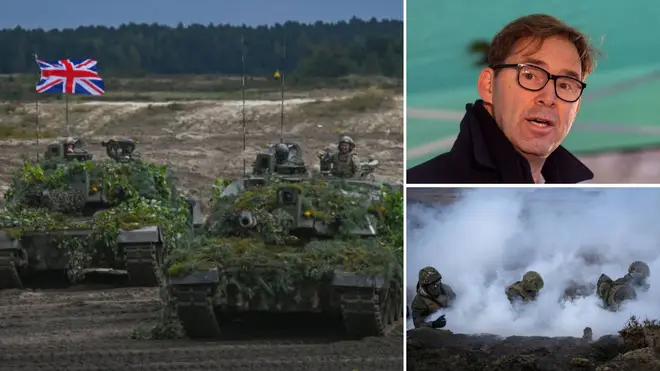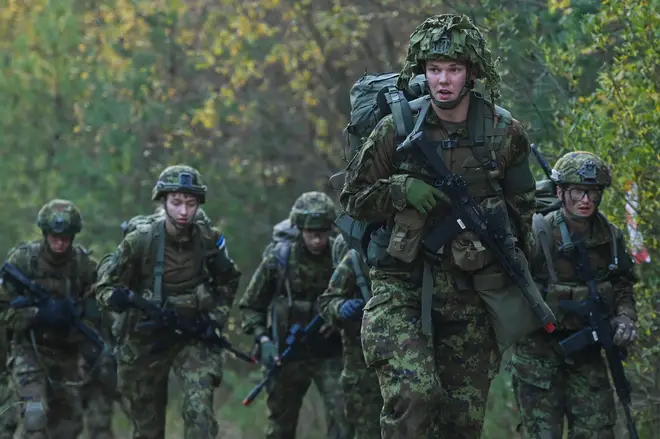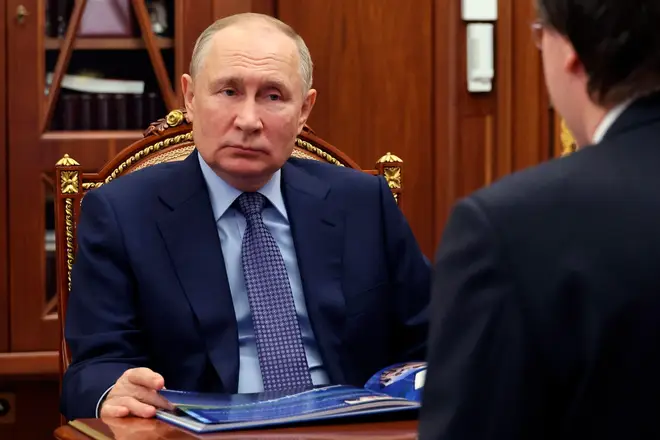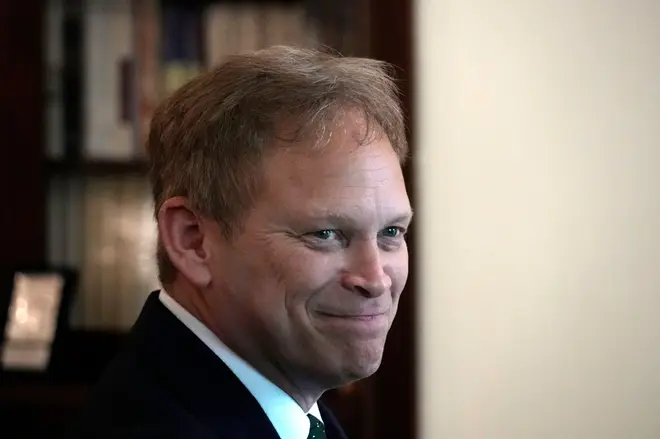
Nick Ferrari 7am - 10am
20 January 2024, 14:49 | Updated: 25 January 2024, 15:20

Military spending needs to increase if Britain is to step up to growing foreign threats, former chairman of the defence select committee Tobias Ellwood has warned.
Speaking to LBC, Mr Ellwood warned that troop numbers are "falling fast", adding that Defence Secretary Grant Shapps has an important debate to win in convincing the Treasury to increase funds.
"We can get so involved in the domestic political discussions but look up and you’re seeing a new alliance form," Mr Ellwood said.
"A new Axis between China, Russia, Iran… the West is shrinking, authoritarianism is on the rise, and that is the world that is now in front of us.
"We have big decisions as to what role we’re going to play to defend what’s important to us. That’s why it’s so important to then start to invest now before it’s too late. This really is 1939 all over again."
Mr Ellwood added that the UK "would struggle" going into war now.
"We’d run out of artillery within a matter of days – literally, within 48 hours or so," he said. "I doubt though that Russia is looking for a direct fight. This is where the art of conflict is changing."
Addressing the importance of increased funding, Mr Ellwood likened current global tensions to that of the Cold War.
"It’s in our interest to invest in defence," he said. "But you need to take the nation with us to make that case because the Treasury is saying 'hang on a minute, we’ve got to pay for schools, hospitals, policing…'
"There is an important narrative to be had to explain why we need to invest in our armed forces, particularly as we’re entering a really dangerous era of global insecurity."
He continued: "This is a cold war era that we’ve entered, not least with the challenges between the United States and China.
"We can only play our role if we move to at least 2.5% GDP defence spend and certainly increase the size of our army."
Read more: Nato urges civilians in the West to prepare for all-out war with Russia within 20 years

It comes after an analysis showed that the British army could number just 52,000 troops in ten years, based on current trends.
The army currently stands at around 76,000 regular full-time troops, down from nearly 103,000 in 2012. The government plans to cut the number of soldiers to 72,500 by next year, which has caused concern among US generals.
But with recruitment proving difficult despite contracts worth more than a billion pounds awarded to a private company to oversee the process, army numbers could drop faster.
John Healey, Labour's shadow defence secretary, told the Times: "On current trends, our army is set for further decline if ministers do not get to grips with their recruitment and retention crisis."
Despite falling numbers, the UK still considers itself to be a top-tier military power, and the British army is providing 20,000 out of 90,000 Nato troops taking part in major exercises that are starting next week.
Britain is one of eight Nato members - out of 30 - who invested 2% of its GDP in the military, which all members previously agreed to do.

Army recruitment issues are due to a declining sense of community, Colonel tells Sangita
The UK has still shown itself to be a willing partner to the US, notably supporting Washington in its recent strikes on the Houthis rebels in Yemen.
A US general said of the UK that "while being the most important ally across the board, it is decidedly not what it used to be, regrettably."
He also said that the UK had "diminished capabilities over the past couple of decades".
It comes after a top Nato official warned that people living in Western countries should prepare for an all-out war with Russia within the next 20 years.

Ex-Nato commander says Houthi rebels are 'using Gaza as an excuse' for their attacks in the Red Sea
The Netherlands' Admiral Rob Bauer said that although Nato and member governments are readying themselves for conflict with Vladimir Putin's regime, civilians must realise that they also have a role to play.
He told reporters that civilians would have to be mobilised in large numbers if war broke out, and governments would have to prepare for how to manage that process.
Adml Bauer, who is the chairman of Nato's military committee, said: "We have to realise it’s not a given that we are in peace. And that’s why we [Nato forces] are preparing for a conflict with Russia.
"But the discussion is much wider. It is also the industrial base and also the people that have to understand they play a role."

Both German and Swedish governments have warned recently that a Nato war with Russia could be on the horizon.
German defence minister Boris Pistorius said: "We have to take into account that Vladimir Putin will one day even attack a Nato country.
"Our experts expect a period of five to eight years in which this could be possible. At the moment I don’t think a Russian attack is likely."
The UK's Defence Secretary, Grant Shapps, said it was important not to be "alarmist".
"It is vital that we continue to lead, deter hostile states and act to defend our country whenever and wherever we need," he told the Telegraph.
"But I would also say that nothing is inevitable. We can deter such threats by being prepared and standing strong with our allies. That is why we are investing in our Armed Forces and our allies.
"This is not about being alarmist. It’s about being ready and being in the right place to defend our interests."

Meanwhile the head of the UK's counter-terror policing said that the threat from hostile states was at the highest level since the Cold War.
The Metropolitan Police's Assistant Commissioner Matt Jukes said: "We are very concerned by the risk of espionage, foreign interference from state apparatus and hostile state activity.
"We are talking about part of the state apparatus of Iran, China and Russia, that triple threat is different in each case but we are seeing some trends."
He added: "The whole environment is very different, probably the most acute picture of threat around espionage and foreign interference, these state threats, the most acute threat since the Cold War."
A spokesperson for the Ministry of Defence said: "Whilst there are undoubted challenges to military recruitment, people are at the heart of the military and the MoD is taking tangible and concrete steps to address shortfalls.
"More widely, the UK is spending more than £50 billion on defence this year to protect our interests wherever they are threatened."